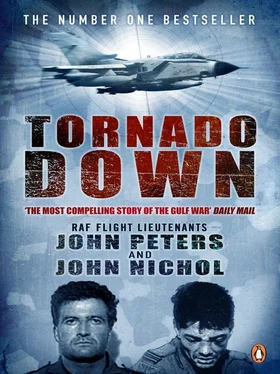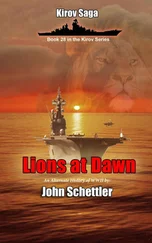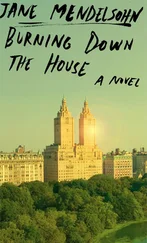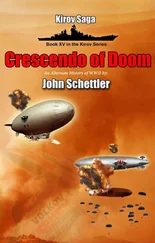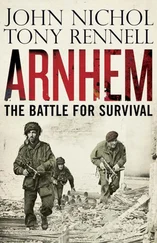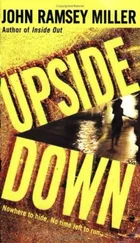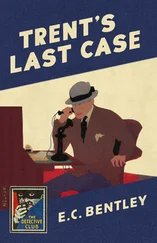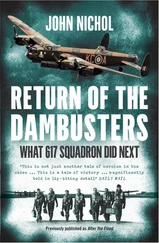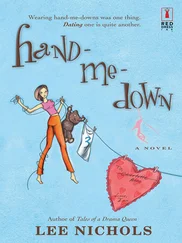Having reassured me on these points, one of the doctors, a man in his mid-fifties, then demonstrated the lung capacity test he wanted me to do next. ‘You’ll have no trouble beating an old codger like me on this one,’ he said, ‘a young man like yourself.’ When he had registered his own mark, he handed me the machine. I took an enormous breath, and blew out with all my strength into the mouthpiece. It registered less than eighty per cent of his score. What a wimp! I was so used to my condition that I had come to accept it as normal and healthy. It wasn’t.
The medics wanted everything – we had to give them stool samples, in a special tray they provided. I don’t normally inspect my excrement, but I was surprised to discover that it was creamy white!
When the doctors had run out of tests, the Intelligence team took over. There were two of them. They didn’t want much, just everything, from the moment we pulled the ejector handle over the desert, to getting out of the helicopter in Amman. Where were you and when? How do you know? What did it sound like? What did they do to you? Where did it happen? What did that interrogator look like? Did he have a moustache? What did the prison smell like? What colour was the paint on the walls? Who said what to you? How did they speak? Some of the questioning seemed trivial. But every apparently insignificant detail was cross-referenced with everybody else’s answers, so that they could build up ‘the big picture’. I had total recall, for the most part, which surprised me.
I was desperately tired after that. I had been up for forty hours. Severe stomach cramps meant that I had to excuse myself politely from time to time during the intensive debrief. At last, I returned to the ward and climbed into bed. Incredibly, it was hard to sleep. After so much time sleeping on a concrete floor it was uncomfortably comfortable. Used to being freezing cold, my body refused to adjust to the warmth, and for weeks afterwards the bedclothes were wet with my own sweat when I woke in the morning.
Everyone was impossibly kind and generous. But I behaved like a selfish squirrel. I took everything, and hoarded it, even if I didn’t need it. I could not stop myself. In solitary confinement, there is no one but yourself to think of, and much of the time that is all you think about. Self-centredness had become a habit. Also, having been deprived for so long of material possessions, I wanted things; I wanted lots and lots of things around me that I could look at, own and touch. After a couple of days, I caught myself doing this, and apologised to people.
The same medical team that would later treat the British hostages released from Lebanon, including John McCarthy, was looking after us during this period, holding us carefully by the hand as we took our first tottering steps back to normality. This team was highly professional. Wing Commander Gordon Turnbull, who was in overall charge, had been involved in stress therapy for some time, and had counselled the victims and the rescuers after the Lockerbie bombing. Turnbull was not at all like the popular conception of a psychiatrist – far too plain-speaking and down-to-earth!
He sat us down and told us that Post-Traumatic Stress Syndrome is a universal human reaction: that people of all races, all ages and all walks of life undergo it; that it affects the body as well as the mind. After his initial lecture on post-traumatic stress, I found myself thinking, ‘I’m all right, I don’t really need all this.’ But I also thought it was good we had people available to us, in case any of us needed it. ‘Sharing our experiences’ was not something we were used to in military life! There were various things we were supposed to do, designed to help us along the road to emotional rehabilitation. To begin with, two psychological social workers formed all us aviators into a circle for a group therapy session.
‘What we’ll do is introduce ourselves,’ said the first woman, ‘so that we all get to know one another…’
‘Oh no,’ I thought. ‘Therapy for head cases, or what!’
Inevitably, when they thought the social workers were not looking, some of the guys started pulling ridiculous faces, aping about, scratching their armpits and generally pretending to be mad.
What I found most therapeutic at this stage were the unofficial things, the simple chats I had with Rob Woods. I needed to talk about what had happened frankly and calmly with a friend. It really helped.
Helen Peters: The morning after that first telephone call from John, I had to appear at a press pool briefing. How did I feel? Ecstatic, I said. Relieved, hugely thankful. But it was weird telling all these strangers about it. The main thing they wanted to know was what we first said to each other. What was it like talking to someone who a few weeks ago you thought might be dead? What did you say? I couldn’t tell them very much, since ‘Have you still got your balls?’ was not exactly a question I wanted all over the front pages.
Some of the other stuff we talked about was classified for military reasons: for example, one or two of the other Squadron guys John had confirmed were alive had not yet been released; we did not want to foul things up for them. The press got quite frustrated, quite quickly. Some of the reporters obviously thought, from my apparent inability to answer their nice, simple questions, that I was either partially insane, or just plain stupid. I did manage one answer that made them laugh – and me blush.
One of the cheeky buggers asked, ‘How will you pick up your love life again, after everything you’ve both been through?’
Without thinking, I replied, ‘Oh, I expect we’ll just slip back into it!’
John Nichol: By the time they got around to the second batch of released POWs, a day later, the Red Cross had things much better organised at the Baghdad Novotel. Although the media were still camped outside its doors in strength, there was a path cleared to the hotel. We were whisked up a number of floors, out of reach of even the most intrepid drainpipe-climber. There was a suite set aside for us. A magnificent buffet met our eyes as we filed in through the doors: baked salmon, roast potatoes, cauliflower – fantastic, mouth-watering. Real food. The sight and smell of it! Proper, fresh, nourishing, well-cooked food. It was a forgotten luxury we were extremely happy to remember. Just breathing in the smells was a major digestive event. Schooled by the first batch of POWs, the Red Cross had provided another source of nourishment: boxes and boxes of Swiss chocolate. We gobbled up all this lovely grub.
There was a US Army medic with us called Rhonda, who had also just been released. Watching us stuffing our faces, she commented, ‘Your enzyme co-factors X, Y and Z won’t be able to handle all this food at once. You’ll be sorry!’ We all pooh-poohed this. She was absolutely right. Within the hour, my guts and everybody else’s had gone completely berserk!
When we had finished eating for the moment, we all began chatting frantically, exchanging stories, catching up on what had happened in the war. Then came some bad news. ‘Look, we’re sorry,’ said the Red Cross people, ‘it’s too windy, you can’t fly out tonight. You will have to stay here. We’ll fly you out in the morning.’ This announcement was met with predictable gloom. But the delay wasn’t our only worry. Out of the windows, we could see crowds gathering and advancing on the hotel, for all the world like a huge lynch-mob. What on earth was happening? It was not beyond Saddam Hussein to stage a ‘spontaneous’ popular demonstration, releasing the anger of the oppressed Iraqi people, with unfortunate consequences for us.
‘Who’s protecting us?’ I asked.
Читать дальше
